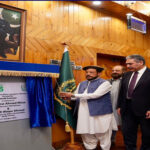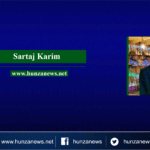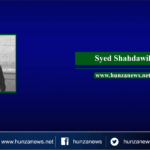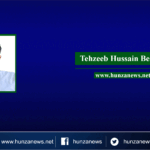The question whether Gilgit-Baltistan is a part of Kashmir has shaped the politics of the landlocked region for years. The mainstream political parties aside, the nationalists and the religious parties have also been found grappling with the identity issue in one way or another. At least two developments in the recent past have caused this issue to flare up. The first is the news that the government might be mulling over a change in the constitutional status of Gilgit-Baltistan to alleviate Beijing’s concerns over building a section of the China-Pakistan Economic Corridor (CPEC) through the disputed area. The second is the fierce opposition by leaders in Azad Jammu and Kashmir (AJK) and from across the Line of Control over the possible integration of Gilgit-Baltistan into Pakistan. Sardar Mohammad Yaqoob Khan, President of AJK, went a step ahead, warning that the integration of Gilgit-Baltistan into Pakistan would be more disastrous than the dismemberment of the country in 1971.
While the AJK Assembly passed a resolution to dissuade the federal government from making Gilgti-Baltistan a separate province, prominent Kashmiri leaders in held Kashmir didn’t lag far behind, asking Prime Minister Nawaz Sharif not to give Delhi an excuse to integrate Indian-occupied Kashmir with India.
These arguments might be valid but they annoyed political forces in Gilgit-Baltistan as they were considered an attack on the rights of a region, which sacrificed its basic constitutional rights for the cause of Kashmir. As a result, suspicions over the Kashmiri leadership’s intentions of wanting to keep Gilgit-Baltistan as its ‘colony’ further gained currency. Local newspapers and social media provided the much-needed space for political forces to vent their anger against AJK leaders.
It was the Dogra Raj that had made Gilgit-Baltistan a part of Kashmir despite the fact that both the regions had distinct cultures and languages and were geographically distant from each other. The people of Gilgit-Baltistan ousted the Dogras from their territory scattered over 72,000 square kilometers through an armed struggle. Gilgit-Baltistan joined Pakistan unconditionally, hoping to be part of the country, but the joy of being Pakistani proved to be shortlived. In 1948, as the matter of Kashmir went to the United Nations for resolution, so did the matter of Gilgit. A year later, officials from the Pakistan government met with those of AJK to sign the ‘Karachi Agreement’. It was agreed that the affairs of Gilgit-Baltistan would be run by what is now called the Federal Ministry of Kashmir Affairs and Gilgit-Baltistan.
Undoubtedly, constitutional issues surrounding Gilgit-Baltistan are complex and chronic. Before Partition, the region then consisting of various small princely states, had been ruled by Dogras as well as the British from time to time. The link-up with Kashmir after independence further complicated matters, leaving successive governments perplexed. This indecisiveness lasted till the 1970s when Zulfikar Ali Bhutto introduced constitutional reforms, abolishing the fiefdom system and the Frontier Crimes Regulation.
For now, it seems practically impossible for a political government to make a sudden policy shift on Gilgit-Baltistan and Kashmir. But what is the alternative? As suggested by the AJK Assembly, a constitutional package granting maximum powers to locally-elected representatives and ensuring their presence in parliament and other forums appears to be a solution. But this shouldn’t happen without a meaningful consultation with political forces in Gilgit-Baltistan. A reforms committee headed by Adviser to the PM on Foreign Affairs Sartaj Aziz has reportedly finalised recommendations to devolve more powers to the Gilgit-Baltistan Assembly. However, the committee’s specific recommendations are yet to be revealed.
In addition, steps need to be taken to mend ties between the two regions, which are part of a larger dispute. This cannot be achieved unless the political leaderships of the respective regions realise the sensitivity of the issue and refrain from making provocative statements for political gains.
Express Tribune























